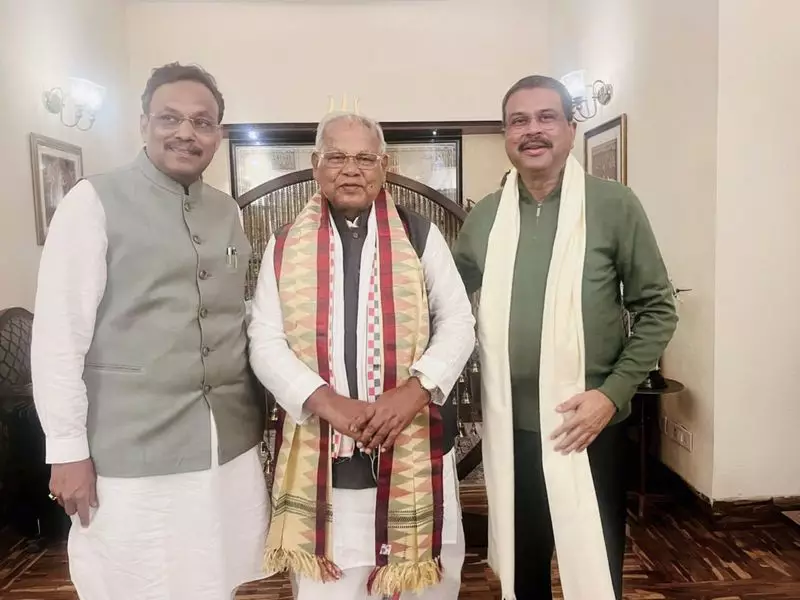
In a significant political development ahead of government formation in Bihar, key National Democratic Alliance partners held crucial meetings with senior BJP leader Dharmendra Pradhan in New Delhi. The discussions come at a pivotal moment as the alliance prepares to stake claim to form the next government in the state.
Key Leaders Engage in Crucial Delhi Meetings
Hindustani Awam Morcha (HAM) founder Jitan Ram Manjhi and Rashtriya Lok Morcha (RLM) chief Upendra Kushwaha held separate meetings with Union Minister Dharmendra Pradhan on Tuesday. These high-level talks are seen as instrumental in finalizing the power-sharing arrangement and cabinet composition within the NDA coalition that secured a majority in the recently concluded assembly elections.
The political maneuvering comes at a critical juncture as the BJP-led alliance works to present a united front while addressing the aspirations of its coalition partners. Both Manjhi and Kushwaha represent important social constituencies in Bihar politics, making their inclusion in the government crucial for the stability of the new administration.
Timing and Political Significance
The meetings took place on Tuesday, marking an important phase in the government formation process. With the NDA having secured the necessary numbers to form the government, these discussions focused on portfolio distribution and the representation of alliance partners in the new cabinet.
Political observers note that the involvement of Dharmendra Pradhan, a senior BJP leader and Union Minister, underscores the importance the central leadership is placing on ensuring smooth government formation in Bihar. His role as a mediator and negotiator highlights the BJP's strategy of maintaining coalition harmony while asserting its leadership position within the alliance.
Broader Implications for Bihar Politics
The outcome of these discussions will have far-reaching consequences for Bihar's political landscape. The allocation of ministerial positions and the satisfaction of alliance partners' demands will determine the stability and effectiveness of the new government.
As smaller parties within the NDA seek adequate representation, the BJP faces the challenge of balancing various interests while maintaining its governance agenda. The successful resolution of these negotiations will be crucial for the coalition's ability to implement its development programs and address the pressing issues facing the state.
These developments also signal the continuing evolution of Bihar's political dynamics, where coalition politics remains central to government formation. The ability of the NDA to manage the expectations of its partners while presenting a cohesive governance vision will be tested in the coming days as the new government takes shape.





